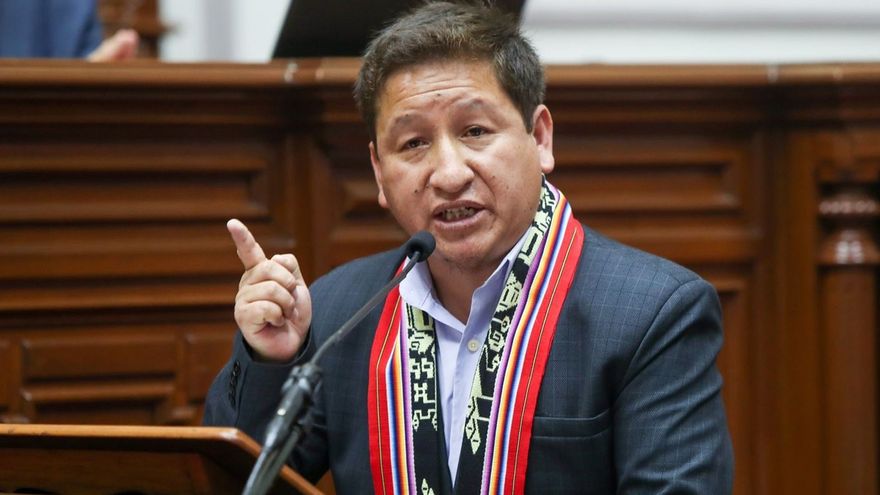RIO DE JANEIRO, BRAZIL – The Peruvian Congress granted its confidence to the Cabinet elected by President Pedro Castillo and thus cleared, at least for a while, the specter of a new political crisis in the country, by allowing the new government to formally and constitutionally exercise its functions.
With 73 votes in favor, 50 against, and no abstentions, Prime Minister Guido Bellido and his ministers, a group questioned by certain political and media sectors for its left-wing positioning, with some of its members denounced for their proximity to groups such as Sendero Luminoso and with serious deficiencies in gender parity, overcame their first major political hurdle.
Read also: Check out our coverage on Peru
The approval of the cabinet deactivated the option that Peru would begin, barely a month after the new president took office, the dynamic of cabinet crises, tensions, and absence of dialogue between the branches of government that marked the previous legislature and that between 2016 and 2021 derived in the dissolution of Congress and the fall of three presidents of the Republic.

GOVERNABILITY
The result of the vote took place despite the absence of sympathy that the Bellido cabinet aroused among the congressmen, except among members of the leftwing Perú Libre and Juntos por el Perú parties, which have several members in the Government, .
Thus, the vote should be interpreted as a triumph of “governability” over “polarization”, which was mainly expressed in the favorable votes of center-right groups such as Acción Popular (AP) or Alianza para el Progreso (APP), which voted mostly in favor of Bellido.
In their speeches, the deputies of these groups, who were also joined by the majority of congressmen of Podemos or Somos Perú-Partido Morado, were hard on the Cabinet, regretted its composition and criticized the proposals put forward by the premier in his speech, but chose to be “serious and responsible”, without giving “blank checks” and under the promise of being “vigilant”.
“We want governability, not a lost five-year term”, summarized Podemos deputy Enrique Wong.
HARD OPPOSITION
The three most conservative groups in the Chamber, Fuerza Popular (pro-Fujimori), Avanza País (ultra-liberal), and Renovación Popular (extreme right), did not enter into this dynamic, denying their support as a block.
“We have no confidence, the people have no confidence in you. I will not give you my vote until there are no concrete actions in all fields”, said José Cueto, from Avanza País.
Among the arguments put forward, accusations were heard again of the link of the government with extremist sectors or openly linked to terrorism, that its program is “communist” and that its representatives are “mediocre”, responsible for the rise in prices, the fall in the exchange rate and the economic difficulties of Peruvians.
LEARNING TO BE A MINORITY
Precisely to these accusations, Bellido responded in his reply, in which he reaffirmed that neither in the government nor in the ruling party’s bench are there people condemned for terrorism and that the government does not propose any “communist program” nor obeys interests beyond “the reality of our country”.
“It would be regrettable to have five years of government with shouts of terrorism in this hemicycle. Let us learn to be a majority and to be a minority, to respect the culture of those who do not think alike,” the prime minister said.
Also, in line with his speech of the day before, he called for the country’s unity to solve the economic, health, and political crisis and reaffirmed that the government would seek to promote “orderly, democratic and peaceful” changes.
After Bellido, several ministers also spoke to answer questions from the congressmen, among them the head of Economy, Pedro Francke, who reaffirmed once again that the government’s economic policies would maintain stability.
“Our priority is economic reactivation by promoting private and public investment. This implies unrestricted respect for private property”, he reaffirmed.
Anhaí Durand, Minister of Women, took advantage of her intervention to indicate that she is also against the gender composition of the Cabinet, where there are only two women among the 19 ministers, and indicated that she would work to “correct” this situation.
This ministerial inequity generated numerous criticisms among progressive and centrist sectors of the Bellido Cabinet.

